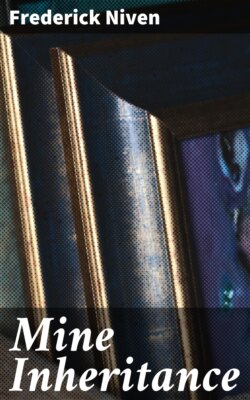Читать книгу Mine Inheritance - Frederick Niven - Страница 30
На сайте Литреса книга снята с продажи.
I
ОглавлениеTable of Contents
Captain Macdonell, in reminiscent mood, was telling me of the last talk he had with Lord Selkirk in London.
“... and ever and again it comes back into my mind,” he ended, “how the sun drifted off the map that lay on the table and the earl remarked, ‘There is a shadow on my Red River Settlement.’ We have had shadow enough, Baxter. This new agent at Fort Gibraltar, this man Duncan Cameron: I hear he lays claim to the rank of captain. I am told that his commission was in the Voyageurs’ Corps, and is a recent one. I do not know how it can be recent, for the corps was actually disbanded about two years ago. I cannot help but surmise some stratagem with intent to impress the settlers that he has equal rank with their governor!”
“He is already visiting a great deal among them,” said I. “My friends the Chisholms have a feeling of doubt in him. He is too ingratiating. Or at least that is Mr. Chisholm’s view. He has been inviting many of our people to Fort Gibraltar and giving them great banquets there by all accounts, with birds and venison and the best wines.”
“Yes, and talking the Gaelic to them, I am told,” remarked the Governor. “He is a cunning gentleman, I gather, with a commission I should like to examine, sent hither to undermine me.”
There the conversation was interrupted by the entrance of John Spencer, on that occasion with no chant of “Good news.” Captain Macdonell, at sight of his serious face, awaited the ill news.
“That man Howse,” began Spencer, “who assisted me in getting the pemican at la Souris, has been set on, Captain, set on and carried away into Fort Gibraltar. I could not think what the stir was. I saw the commotion from a distance. One of the half-breeds who hang around the North-West fort told Tipotem” [Tipotem was the name of an Indian whom the Governor had brought with him from Oxford House in 1812] “that Cameron is going to send him to Montreal to be tried for burglary.”
“A high-handed gentleman!” ejaculated Macdonell, though probably recalling his own qualms on hearing of palisade pickets drawn and lock broken by his representatives at la Souris. “Well, he has taken the law into his own hands. We can make our response. There are canoes coming up all the time now to them from Fort William. We will mount some of our swivels on the bank here and stop the next canoe and take the men prisoners. Fort Gibraltar, indeed!”
Next day he had his desire. A sentry announced canoes coming up river and he hurried to the bank with several of us. The guns had been placed on its edge where there was a gap in the ribband of trees. They were thus plainly visible, at a bend, trained on the river. Beside each were men clearly ready to fire at a signal.
At our shout of “Halt!” the paddlers, who had already seen the guns, poised their paddles. At Miles Macdonell’s order, “Come ashore here!” they held speedy conference and obeyed. Wide-eyed, amazed, they drew in. That there might be trouble on Red River they most likely knew, but none had expected such a reception as that. Some of them, we heard later, thought that those who halted them must be their enemies of the war then being waged eastward, Americans who had raided hither possibly by way of the Ouisconsin country.
They were promptly unarmed by our men who were carrying muskets with fixed bayonets, and short but deadly bayonets they were. In one of the canoes was a chest of firearms which was appropriated. And then they were told (they numbered, by the way, one clerk and twenty voyageurs) that they might proceed to Fort Gibraltar and give information that until Mr. Howse was set free all canoes would be stopped and those in them held prisoners.
